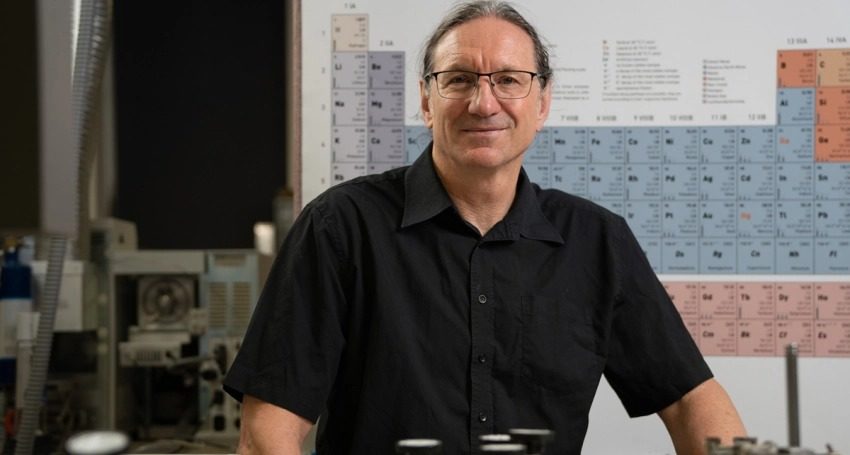Industry backs South Australian scientist making green hydrogen headway
Education
Engaging with industry to find real-world solutions to the problems facing humanity is a key goal of the University of Adelaide.

Sign up to receive notifications about new stories in this category.
Thank you for subscribing to story notifications.

Australian mining magnate Andrew “Twiggy” Forrest plans to eliminate fossil fuels from his Fortescue Metals Group companies by 2030. His strategy? Support researchers in the “green hydrogen” space as they strive to make this zero-carbon fuel affordable.
Enter the University of Adelaide’s Greg Metha.
The chemistry professor patented a device in 2019 that makes hydrogen directly from solar energy and water – with game-changing efficiency.
Greg and his research team are now leading a joint venture between Fortescue Future Industries, Sparc Technologies and the University of Adelaide, called Sparc Hydrogen. Their mission is to produce commercially viable green hydrogen through a process known as thermo-photocatalysis.
“This reaction jumped out at me as a very important problem to solve,” Greg says.
“I could see we needed to decarbonise, and I could see we needed hydrogen to do that. But I could also see that the electrolysis route—our existing green hydrogen technology – was very, very expensive.”
No electrolysers or electricity is needed for Greg’s new single-step approach, only sunlight, water and a catalyst. Which makes it a much more affordable operation.
If this technology can be successfully scaled up, it may finally wipe fossil fuels out, including in the hard-to-abate arena of heavy industries.
Greg is excited to have so much support behind his work.
“Many inventions fall over at this point,” he says.
“Innovation requires a certain level of investment. And while funding for zero-carbon fuels seems like a no-brainer – I mean, we’re talking about the future of humans here – scientists don’t always get this kind of backing.”
According to Greg, the world needs more curious billionaires like Twiggy.
“There’s lots of incredible work going on in universities that industry leaders aren’t aware of. The University of Adelaide is doing all sorts of research on lowering the carbon footprint of steelmaking, alumina, and cement manufacturing through the Heavy Industry Low-carbon Transition Cooperative Research Centre (HILT CRC),” Greg says.
“I’m a really strong supporter of engagement between academia and industry. That’s how we’re going to get somewhere.”
Stephen Rodda, the University of Adelaide’s Chief Innovation and Commercialisation Officer agrees.
“Industry engagement is a priority for us,” he says.
“There’s no point in next-generation technologies sitting around in labs, or game-changing ideas gathering dust in journals. We have a responsibility to get inventions like this out in the community shaping a sustainable future.”
Stephen says he was thrilled to be able to support Greg and his team to get to where they are now.
“Sparc Hydrogen is a perfect example of the University of Adelaide’s internationally regarded research being put on a path to not only achieving commercial success but also potentially changing the world,” he says.
Tune into the University of Adelaide’s podcast series – The Discovery Pod – to hear more about green hydrogen from Greg and discover other researchers at the forefront of innovation.
If you’re interested in partnering with the University of Adelaide contact commercialisation@adelaide.edu.au.
Jump to next article



